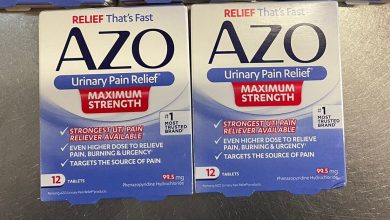Can I Take Rhineton Pills During Pregnancy?

Many people get allergies while pregnant, sometimes for the first time and certainly if you have a history of them. Allergies are very common in pregnancy, and not all women who experience them are long-term allergy sufferers. Many women with no known prior allergies only complain of their symptoms during pregnancy.
Almost every pregnant woman with allergies will face a decision about taking or using medicines during pregnancy. However, not all medicines are safe to take during pregnancy. Some medicines may cause birth defects, pregnancy loss, prematurity, infant death, or developmental disabilities.
A recent National Birth Defects Prevention Study of more than 13,000 pregnant women found that about 30 percent of women undergo at least one course of antibiotic treatment between the three months prior to conception and the end of their pregnancies, most commonly during the fourth month of pregnancy.
What is Rhineton?
Rhineton is a South African brand of chlorpheniramine, a class of medications called antihistamines. It works by blocking the action of histamine, a substance in the body that causes allergic symptoms.
Rhineton relieves red, itchy, watery eyes; sneezing; itchy nose or throat; and runny nose caused by allergies, hay fever, and the common cold. It helps control the symptoms of cold or allergies but will not treat the cause of the symptoms or speed recovery.
How should Rhineton be used?
Rhineton comes as a tablet. Follow the directions on your prescription label carefully, and ask your doctor or pharmacist to explain any part you do not understand. Take Rhineton exactly as directed. Do not take more or less of it or take it more often than prescribed by your doctor.
Do not give Rhineton to children younger than 4 years of age. If you give these products to children 4-11 years of age, use caution and follow the package directions carefully. Before you give Rhineton to a child, check the package label to find out how much medication the child should receive. Give the dose that matches the child’s age on the chart. Ask the child’s doctor if you don’t know how much medication to give the child.
Is Rhineton safe in pregnancy?
Oral antihistamines like Rhineton and loratadine (Claritin) seem to be safe. So does cromolyn sodium (Nasalcrom) nasal spray and the steroid nasal spray Rhinocort, but ask your doctor before using. An advantage to sprays is that the drug is focused only in your nose. It doesn’t travel throughout your body.
During your first trimester, don’t take decongestants by mouth either. They may make some birth defects more likely. Watch out for antihistamines combined with a decongestant. Since there’s not enough evidence for their safety, avoid antihistamine nasal sprays.
Is it safer to skip allergy medication altogether when I’m pregnant?
If your symptoms aren’t bad, your doctor may suggest other treatments instead. You could allergy-proof your home or rely on saline nasal sprays.
What are the side effects of Rhineton?
Rhineton may cause side effects. Tell your doctor if any of these symptoms are severe or do not go away:
• drowsiness
• dry mouth, nose, and throat
• nausea
• vomiting
• loss of appetite
• constipation
• headache
• increased chest congestion
Some side effects can be serious. If you experience any of the following symptoms, call your doctor immediately:
• vision problems
• difficulty urinating
If you experience a serious side effect, you or your doctor may send a report to the Food and Drug Administration’s (FDA) MedWatch Adverse Event Reporting program online (http://www.fda.gov/Safety/MedWatch) or by phone (1-800-332-1088).





